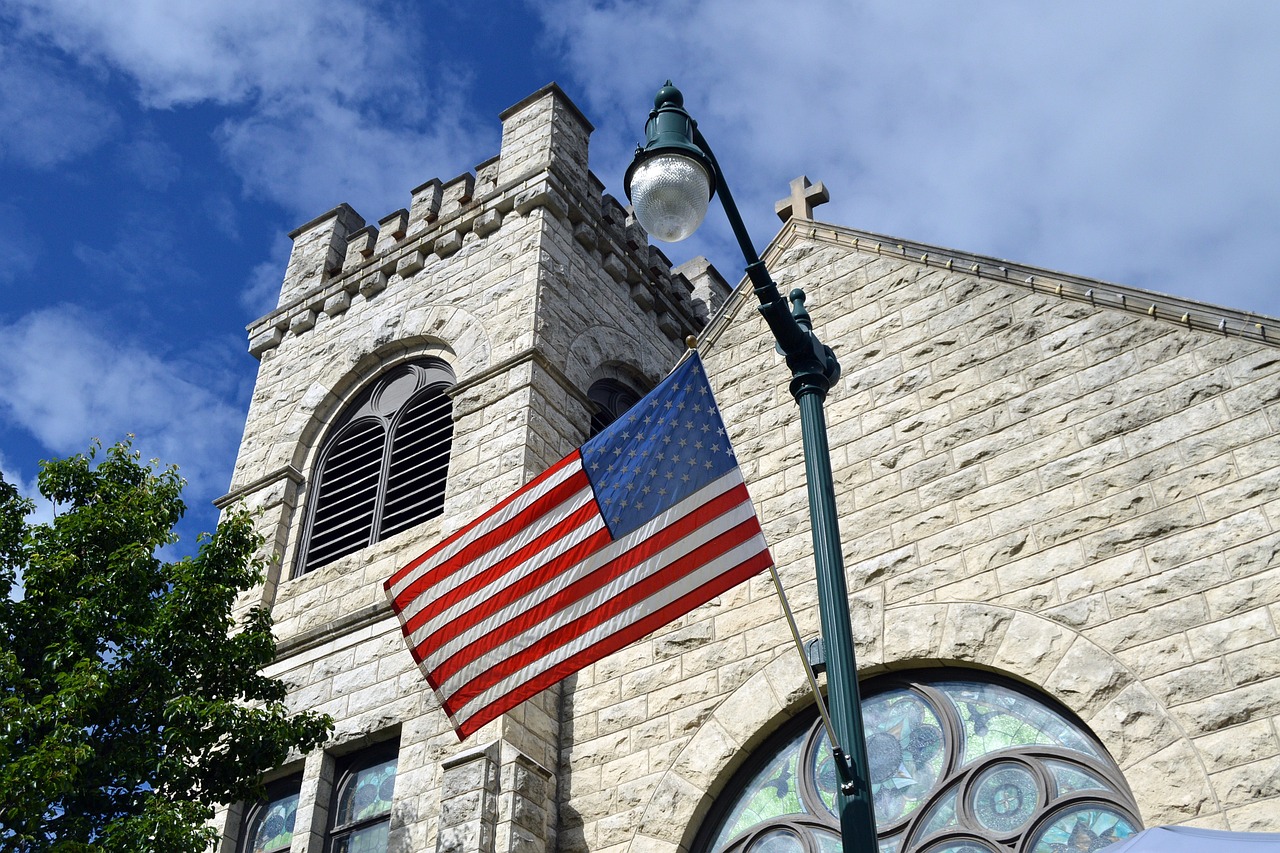Despite years of coverage that Americans have lost their faith, three out of four Americans not only believe in God but belong to a specific religion, according to a Gallup poll released on Good Friday. “By far the largest proportion, 68%, identify with a Christian religion, including 33% who are Protestant, 22% Catholic and 13% who identify with another Christian religion or simply as a ‘Christian,’” Gallup reported on March 29. Another seven percent “identify with a non-Christian religion, including 2% who are Jewish, 1% Muslim and 1% Buddhist, among others.” Only 22% said they did not identify with any religion.
Moreover, faith exercises a pivotal role in most Americans’ lives, with 71% saying that religion is “very important” (45%) or “fairly important” (26%) to them. The share of Americans who placed a high premium on their faith fell below a majority for the first time in U.S. history in 2019.
That does not mean that church membership has rebounded completely: 45% of Americans formally belong to a church, synagogue, or religious congregation. That number fell below a majority during 2020. “Slightly more than one-third of U.S. young adults have no religious affiliation. Further, many young adults who do identify with a religion do not belong to a church,” noted Gallup. “But even older adults who have a religious preference are less likely to belong to a church today than in the past.”
Yet even these numbers may overstate the number of unbelievers, as 69% of Nones (people who do not identify with any particular faith) believe in God, according to a Pew Research Center poll. Still, a separate poll from the left-leaning Public Religion Research Institute (PRRI) released March 27, found, “While the percentage of Americans who describe themselves as ‘nothing in particular’ is similar to a decade ago (16% in 2013 to 17% in 2023), the numbers of both atheists and agnostics have doubled since 2013 (from 2% to 4% and from 2% to 5%, respectively).”
Overall, the new Gallup poll revealed that one out of three Americans (32%) have attended a church or other religious service in the last week. That represents a modest increase from the historic low of 29% in 2021 during the wake of the COVID-19 lockdowns. About the same percentage say they attend church weekly (21%) or “almost every week” (9%). Larger shares say they attend church monthly (11%) and seldomly (26%). Another 31% say they “never” take part in religious services.
The most liberal churches have experienced the steepest losses in membership, numerous reports found. Ryan Burge, research director at Faith Counts, tracked the membership of numerous U.S. denominations between 1987 and 2021. “The mainline is just a bloodbath,”wrote Burge last June. “Five traditions are down by at least 30%. The ELCA is down 41%. The United Church of Christ is less than half the size it was in the late 1980s. The United Methodists are already down 31%, but with over 15% of their churches disaffiliating just this year, I wouldn’t be surprised in membership is down 40% or more by this time next year.”
Southern Baptists have also lost 4% of their membership, but the decline began only recently, Burge said.
The overall decline in church attendance stems not just from those leaving Protestant congregations but also “decreasing weekly attendance among U.S. Catholics,” Gallup relayed last week. PRRI stated that “Catholics continue to lose more members than they gain, though the retention rate for Hispanic Catholics (68%) is somewhat higher than for white Catholics (62%). White mainline/non-evangelical Protestants also continue losing more members than they replace and at higher rates than other Protestants.” Black Protestants (82%), Jews (77%), and white evangelicals (76%) have the highest retention rates, per PRRI.
Yet more conservative churches continue to grow. “The Assemblies of God has grown by over 50% in the 35 years,” wrote Burge. The Presbyterian Church in America “has doubled in size, as well.” Oriental Orthodox churches such as the Coptic church reported a67% membership surge between 2010 and 2020, nearly all due to increased immigration from northern Africa and India.
Overall, the data paint a complicated picture. “The trends are clear that we are secularizing in some sense. There is a decline in participation in organized religion and in belief in God, but those are not necessarily the same thing,” Joseph Backholm, senior fellow for Biblical Worldview and Strategic Engagement at Family Research Council, told The Washington Stand. “The one clear thing is that some belief in a higher power is persistent. People can’t shake the idea that the universe didn’t create itself.”
“That may be where the consensus ends,” he added. “Even within Christianity, we see such radically different opinions about what that means that it’s difficult to believe everyone identifying as a Christian shares the same faith.”
David Closson, director of the Center for Biblical Worldview at FRC, agreed. “What we’ve learned from FRC’s own research, as well as George Barna’s research with the Cultural Research Center, is that the percentage of those who hold a consistent biblical worldview isaround 6%, ” Closson told TWS. “Thus, it is probably more accurate to say that Gallup is helpfully illustrating the loss of cultural Christianity. But this is an important observation in itself; the percentage of Americans who identify as Christian is decreasing rapidly, which means that basic Christian beliefs will increasingly be seen not only as outdated or old-school but dangerous and subversive. We are still living on the fumes of a post-Christian culture, and this is reflected in the large percentages of Americans who still identify as Christian even though many of them don’t go to church or profess any specific theological viewpoints.”
All parties conceded that America’s religious atrophy and eroding biblical worldview will likely impact the policies enacted at a national and local level. “Compared with all Americans, the unaffiliated are notably more likely to identify as Democrats (35% vs. 29%) and independents (38% vs. 30%), and substantially less likely to identify as Republican (12% vs. 29%),” PRRI noted.
The declining share of Americans who hold a worldview “shouldn’t matter” when it comes to public policy, but it “ultimately will,” said Backholm. “The First Amendment requires that we treat small groups of religious individuals the same as big groups, but in reality cultural dominance, or the lack thereof, matters. That’s why we see pro-life activists being punished for public speech and business owners repeatedly sued for behavior that was uncontroversial 20 years ago.”
“Being a minority religion has always come with challenges, even in America,” Backholm told TWS. “The politically dominant religion in America is becoming a hybrid of secularism and progressive Christianity defined by the belief that people should be free to do whatever makes them happy.”
“Those who don’t embrace those creeds are going to have problems,” he warned.



